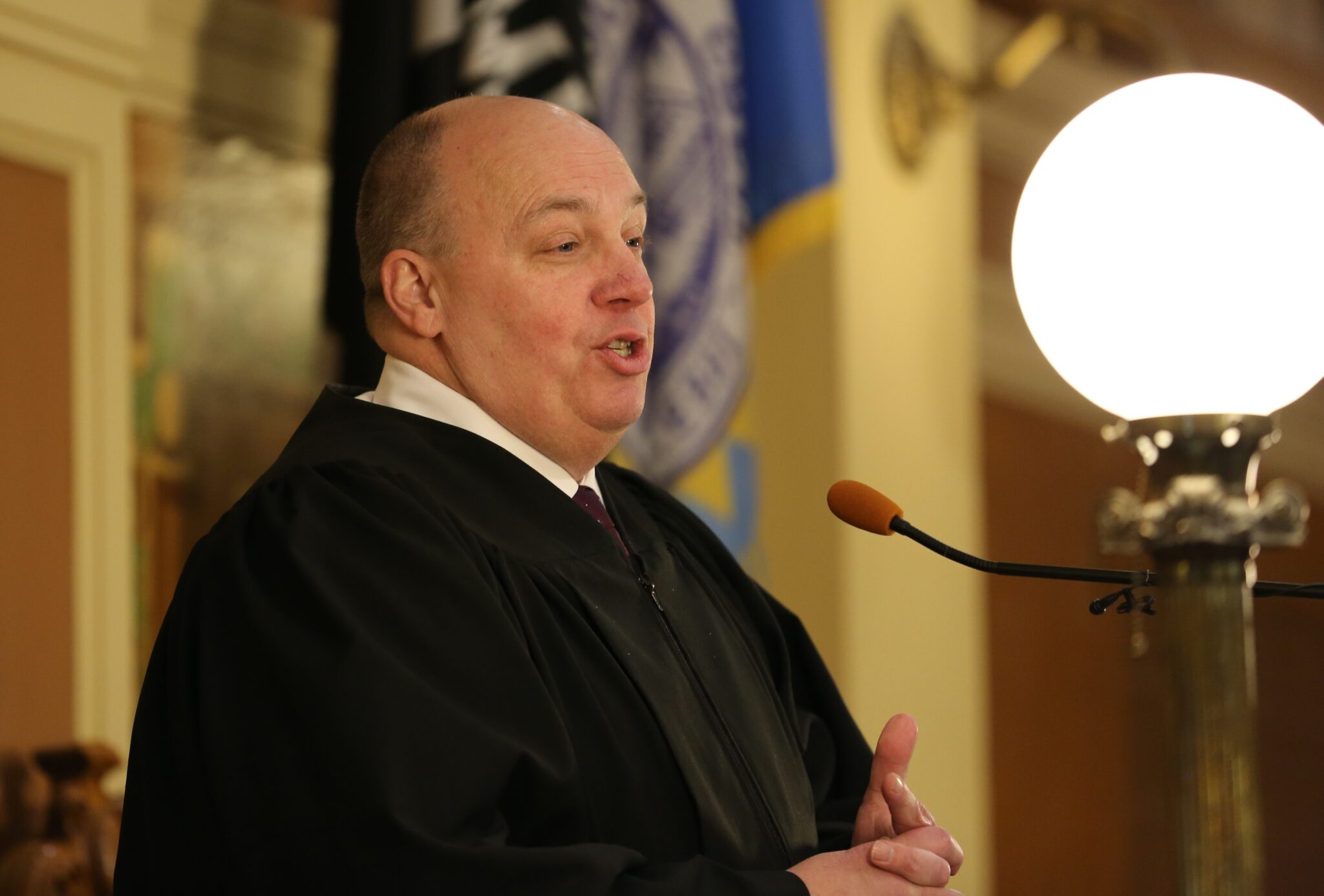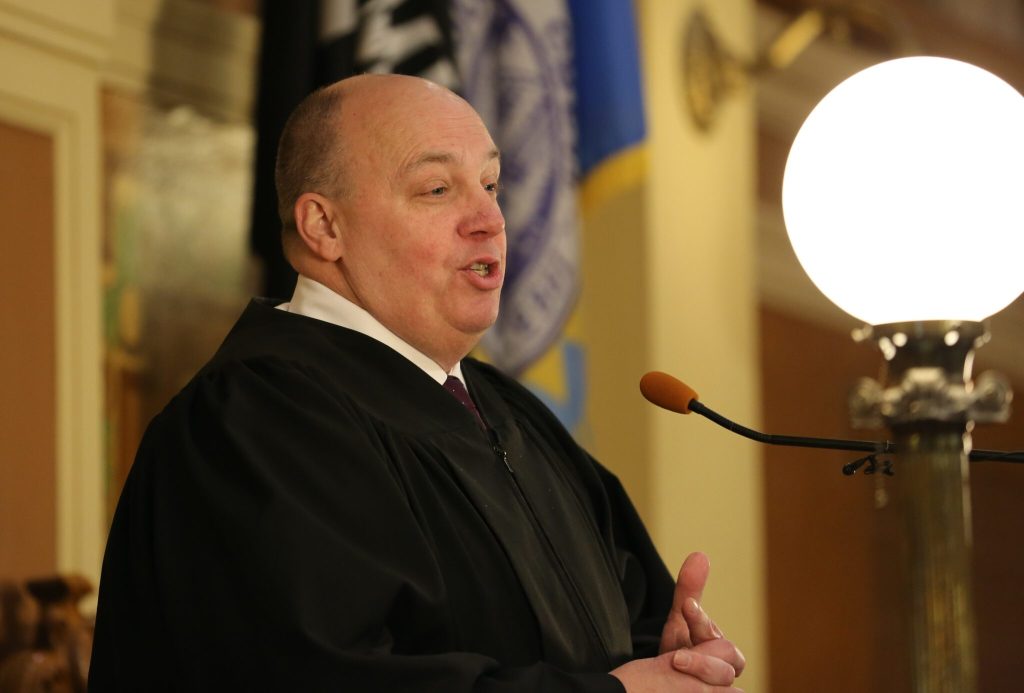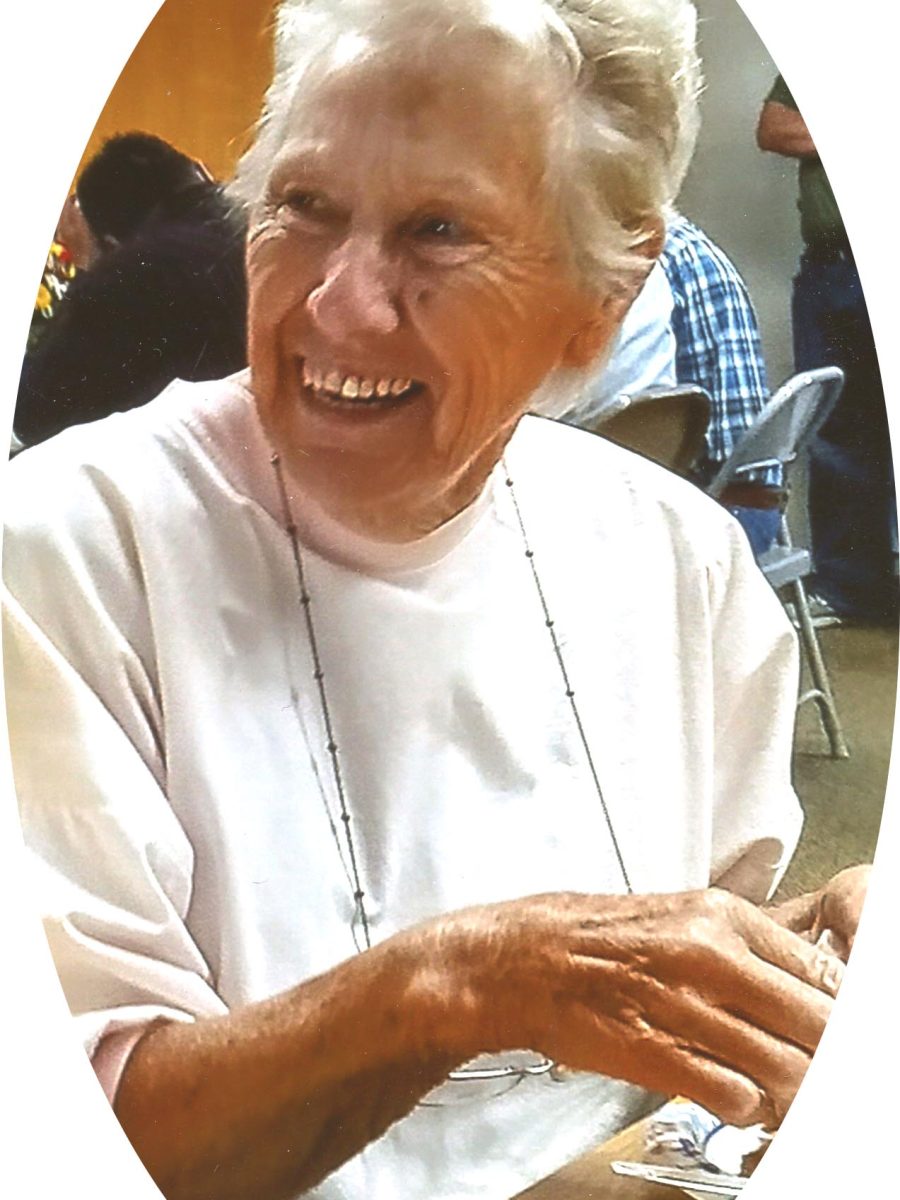PIERRE, S.D. – After creating a state office last year to handle criminal appeals by people who can’t afford an attorney, the next step is extending that help to the trial court level, South Dakota’s top judge told legislators Wednesday.
Steven Jensen, chief justice of the state Supreme Court, delivered his annual State of the Judiciary address to lawmakers at the Capitol in Pierre.
One of Jensen’s major topics was “indigent defense” — the use of court-appointed attorneys or public defenders for criminal defendants who lack the financial wherewithal to hire their own representation. The right to court-appointed counsel is guaranteed by the U.S. Constitution.
South Dakota’s counties have traditionally borne the responsibility and cost of indigent defense. Last year, with the Legislature’s approval and funding, the state created its own office to handle some cases and a commission to oversee the effort.
“The creation of the commission and the Office of Indigent Legal Services is a monumental first step to create a more efficient and effective system of indigent defense in South Dakota,” Jensen said.
He did not specifically ask legislators to expand the office, and he did not provide a cost estimate. But he did say an expansion “will require statutory authorization from the Legislature.”
The office’s creation and the ongoing overhaul of South Dakota’s “antiquated and inefficient” system of indigent defense has been 50 years in the making, Jensen said.
He was referencing a 1977 study that identified deficiencies in the system. The study’s recommendations went largely unheeded, which meant that by last year, South Dakota was the only state to saddle its counties with all of the costs of indigent defense.
Last winter, the Legislature and Gov. Kristi Noem provided $1.4 million in annual funding to create the new state office. It includes a chief public defender who leads a team of four attorneys, a paralegal and a legal secretary.
The office handles a limited set of indigent defense cases: criminal appeals; “habeas corpus” appeals, which are filed to challenge a suspect’s detention; and child abuse and neglect appeals. Counties remain responsible for other types of indigent defense cases, including everything at the trial level prior to any appeals.
Jensen said counties and judges struggle to find attorneys for indigent criminal defendants in rural areas. Attorneys appointed to take the cases often have to drive several hours to meet with a defendant or participate in court proceedings, and Jensen said the travel time is not compensated.
“The creation of regional, full-time public defenders through the Office of Indigent Legal Services could alleviate many of these concerns,” Jensen said.
A proposal to fund an expansion of the office could face opposition this year, due to the state’s declining sales tax revenues. Noem has proposed numerous cuts in the state budget, which legislators will consider during their annual lawmaking session that began Tuesday and continues through March 13.














